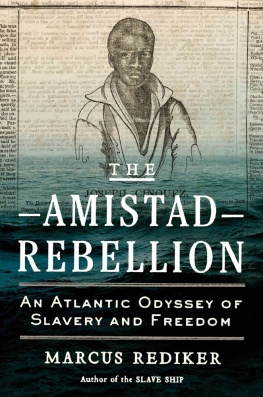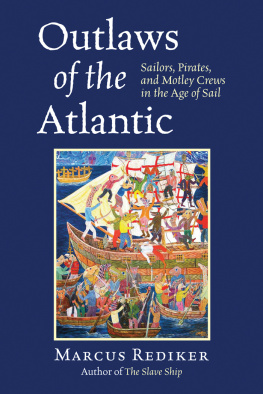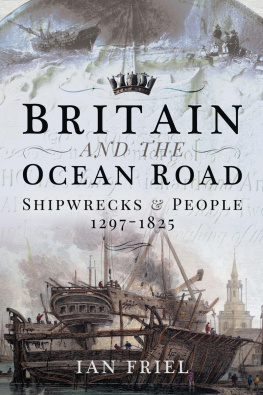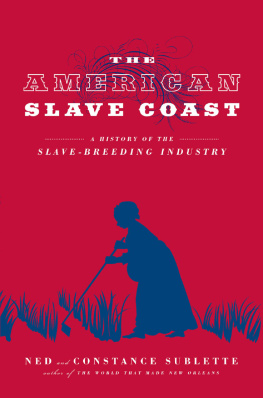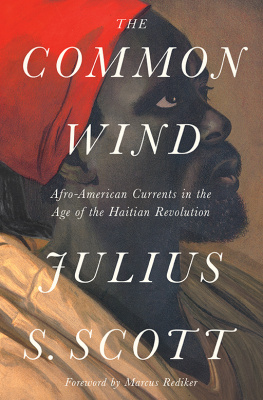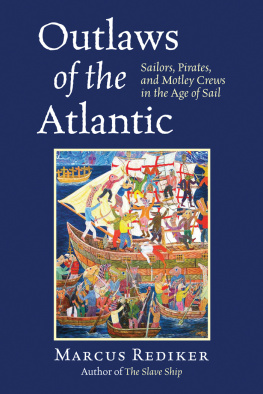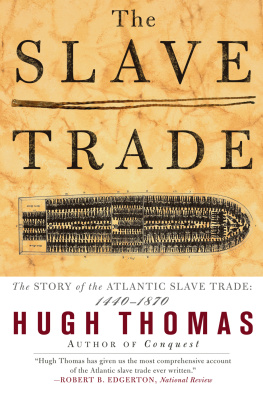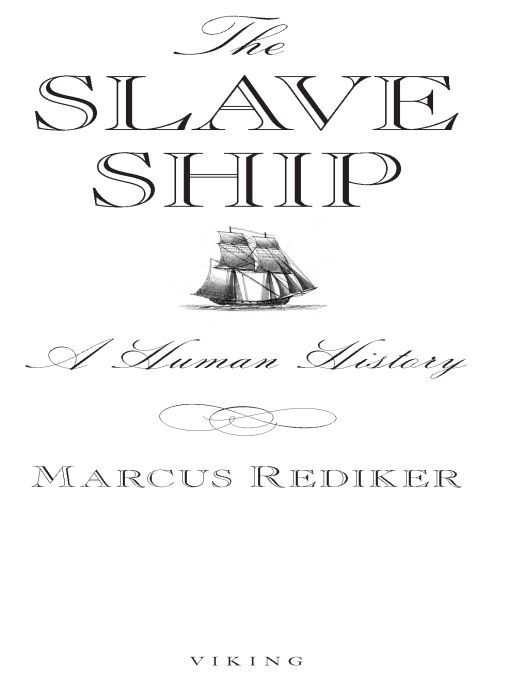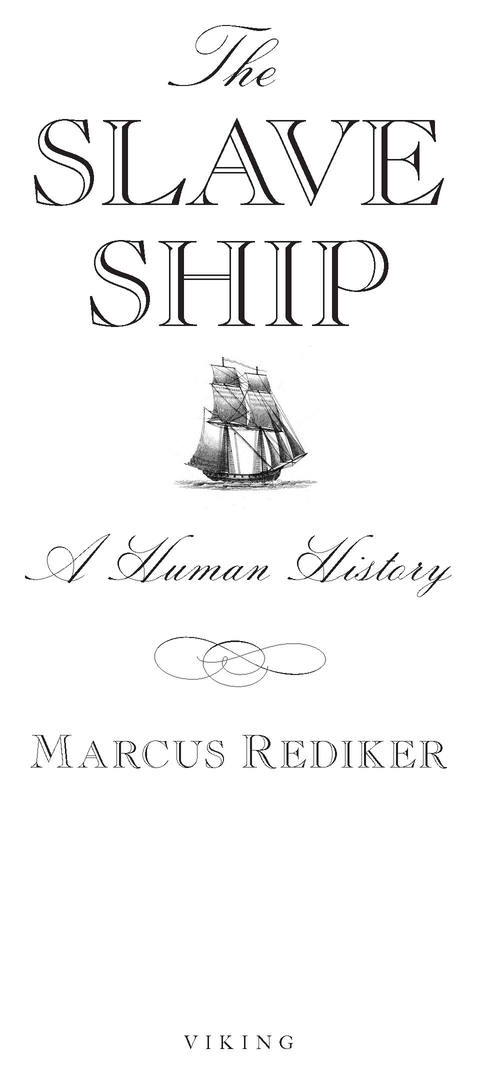Table of Contents
The Slave Ship is truly a magnificent and disturbing bookdisturbing not only because it details the violence and barbarism of the free market in human beings, but it reminds us that all actors in this drama are human, including the ships crew. The Slave Ship is not for the fainthearted, but like the millions who took this voyage in the past, we have no choice. We have to come to terms with this history if we want to understand how this modern, racialized and globalized economy based on exploitation came to be.
Robin D. G. Kelley, author of Freedom Dreams: The Black Radical Imagination
The Slave Ship is a tour de force that conveys the reality of the slave trade more vividly and convincingly than ever before. I am sure that it will continue to be read as long as people want to understand a crucial episode in the birth of the modern world.
Robin Blackburn, author of The Making of New World Slavery
This beautifully written and exhaustively researched book gives us unforgettable portraits of the captives, captains, and crewmen who came together in that particular kind of hell known as the slave ship. This is Atlantic history at its best.
Robert Harms, author of The Diligent
Marcus Rediker is one of the most distinguished historians of the eighteenth-century Atlantic world, and he brings to the slave ship both an unrivaled knowledge of maritime labor and a deep theoretical perspective on the slave trades role in the rise of capitalism.
Steven Hahn, author of the Pulitzer Prize-winning A Nation Under Our Feet
This Atlantic epic brilliantly reveals the slave ship as a vast machine, transforming its human cargo into slaves, and portrays precisely the variety of Africans, free and captive, in their choices and desperate struggles.
Patrick Manning, author of Slavery and African Life
Marcus Rediker, like the incomparable Herman Melville, understands both the immediate human drama and the sweeping global context of life aboard a cramped ocean vessel in the age of sail. He uses his unique gifts to take us belowdecks, giving a human face to the inhuman ordeal of the Middle Passage.
Peter H. Wood, author of Strange New Land: Africans in Colonial America
The Atlantics foremost historian from below has written a master-piece; we hear the shrieks of pain, the groans of loss, and uproar of rebellion. In the end, with ex-slaves offering amazing graces to discarded sailors, the cry rises up from this magnificent book for justice and for reparation.
Peter Linebaugh, author of The London Hanged
ALSO BY MARCUS REDIKER
Villains of All Nations: Atlantic Pirates in the Golden Age
The Many-Headed Hydra: Sailors, Slaves, Commoners, and the
Hidden History of the Revolutionary Atlantic
(with Peter Linebaugh)
Who Built America? Working People and the Nations Economy, Politics,
Culture, and Society, Volume One: From Conquest and Colonization
Through Reconstruction and the Great Uprising of 1877
(with the American Social History Project)
Between the Devil and the Deep Blue Sea: Merchant Seamen, Pirates,
and the Anglo-American Maritime World, 1700-1750
To Wendy, Zeke, and Eva
with love and hope
Introduction
Lying in the bottom of the canoe in three or four inches of dirty water with a woven mat thrown over her travel-weary body, the woman could feel the rhythmic pull of the paddles by the Bonny canoemen, but could not see where they were taking her. She had traveled three moons from the interior, much of it by canoe down the rivers and through the swamps. Several times along the way, she had been sold. In the canoe-house barracoon where she and dozens of others had been held for several days, she learned that this leg of the journey was nearing its end. Now she wiggled upward against the wet torso of another prostrate captive, then against the side of the canoe, so she could raise her head and peer above the bow. Ahead lay the owba coocoo, the dreaded ship, made to cross the big water. She had heard about it in the most heated threats made in the village, where to be sold to the white men and taken aboard the owba coocoo was the worst punishment imaginable.
Again and again the canoe pitched up and down on the foamy surf, and each time the nose dipped, she could glimpse the ship like an oddly shaped island on the horizon. As they came closer, it seemed more like a huge wooden box with three tall spikes ascending. The wind picked up, and she caught a peculiar but not unfamiliar odor of sweat, the pungency of fear with a sour trail of sickness. A shudder rippled through her body.
To the left of the canoe, she saw a sandbar and made a decision. The paddles plashed gently in the water, two, three, four times, and she jumped over the side, swimming furiously to escape her captors. She heard splashes as a couple of the canoemen jumped in after her. No sooner had they hit the water than she heard a new commotion, looked over her shoulder, and saw them pulling themselves back into the canoe. As she waded onto the edge of the sandbar, she saw a large, stocky gray shark, about eight feet long, with a blunt, rounded snout and small eyes, gliding alongside the canoe as it came directly at her. Cursing, the men clubbed the shark with their paddles, beached the watercraft, jumped out, and waded, then loped after her. She had nowhere to run on the sandbar, and the shark made it impossible to return to the water. She fought, to no avail. The men lashed rough vine around her wrists and legs and threw her back into the bottom of the canoe. They resumed paddling and soon began to sing. After a while she could hear, at first faintly, then with increasing clarity, other soundsthe waves slapping the hull of the big ship, its timbers creaking. Then came muffled screaming in a strange language.
The ship grew larger and more terrifying with every vigorous stroke of the paddles. The smells grew stronger and the sounds loudercrying and wailing from one quarter and low, plaintive singing from another; the anarchic noise of children given an underbeat by hands drumming on wood; the odd comprehensible word or two wafting through: someone asking for menney, water, another laying a curse, appealing to myabecca, spirits. As the canoemen maneuvered their vessel up alongside, she saw dark faces, framed by small holes in the side of the ship above the waterline, staring intently. Above her, dozens of black women and children and a few red-faced men peered over the rail. They had seen the attempted escape on the sandbar. The men had cutlasses and barked orders in harsh, raspy voices. She had arrived at the slave ship.
The canoemen untied the lashing and pushed the woman toward a rope ladder, which she ascended with fifteen others from her canoe, everyone naked. Several of the men climbed up with them, as did the black trader in a gold-laced hat who had escorted them from the canoe house to the owba coocoo. Most of the people in her group, herself included, were amazed by what they saw, but a couple of the male captives seemed strangely at ease, even speaking to the white men in their own tongue. Here was a world unto itself, with tall, shaved, limbless trees; strange instruments; and a high-reaching system of ropes. Pigs, goats, and fowl milled around the main deck. One of the white men had a local parrot, another a monkey. The



